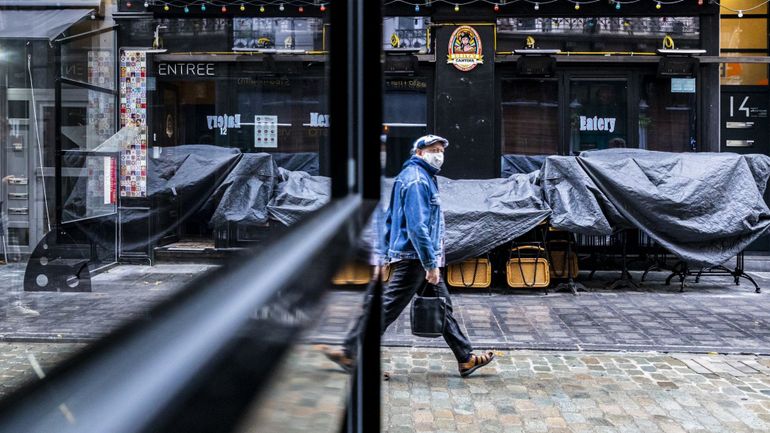Three of the country’s most senior lawyers have published an open letter calling on parliament to open up a full debate about the way ‘freedom-restricting rules’ are being implemented during the pandemic.
Xavier Van Gils, Paul Lefebvre and Peter Callens are respectively president of the French-speaking bar, chair of the German-speaking bar and president of the Flemish Bar Council. Together they represent thousands of the country's lawyers.
In their letter, published today in Le Soir and De Standaard, they take issue with the legal framework on which most of the measures brought in to tackle the Covid-19 crisis are based.
Since the start of the crisis, voices have been raised about the problem of how the constant stream of new rules are legislated. At the basis is a Royal Decree, which essentially gives the King the power to make decrees through the government. The government makes ministerial decrees which contain the rules, for example on hairdressers opening to cut or colour hair but not to shave beards, and those rules become law the minute they are published in the official gazette.
But that, the lawyers argue, is not the way laws are passed in a constitutional state.
“In the constitutional state, no one can be punished unless there is a clear law that makes the offence punishable and sets a penalty for it,” they write.
“If that law does not exist, the judge will acquit. It's that simple. Lawyers are there to defend their clients. If they argue with conviction that a ministerial decision has no legal basis, and therefore cannot lead to punishment, then they do no more than their job. […] Lawyers represent the interests of their clients, if necessary against the executive power.”
That is quite different, they argue, from what is happening in the current situation, where parliament was asked to hand over carte blanche to the executive, and the executive has now sidelined parliament entirely. As a result, they say, “the explosive cocktail of corona standards leads to a perception of lawlessness and arbitrariness, and is a breeding ground for populism and conspiracy theories.”
“Standards that curtail the fundamental rights and freedoms of citizens are undeniably temporarily necessary for public health in this crisis, but such a restriction of freedom will only be enforceable if they are implemented according to the legal rules of the game,” the lawyers insist.
“In the democratic constitutional state, such temporary restrictions of freedom must be established in parliament, or on the basis of clear and uniform criteria laid down by parliament, after the necessary advice has been obtained from the Council of State and other bodies. That cannot be done in the corridors of, for example, the Ministry of the Interior, however sensible and learned the initiators may be, and however good their intentions may be.”
“We are extremely concerned about this erosion of the rule of law,” they conclude.
“The corona rules are constantly changing and are based on too shaky legal basis. This can give rise to unequal treatment in the event of breaches of those rules . The 'new normal' which we are being presented with can never be a reason to erode the foundations of our rights and freedoms.”
Alan Hope
The Brussels Times

